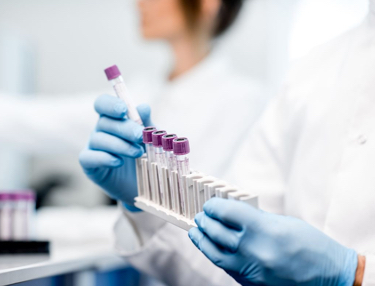Do you want to participate in the development of a preventive HIV vaccine, which represents the best solution to control and eradicate the AIDS epidemic? The mission of the VRI is to conduct clinical trials, with the collaboration of its internationally recognized scientific teams, in order to accelerate the development of HIV vaccines.
HIV in numbers
Globally, almost 38 million people are currently infected and living with the HIV virus.
new cases per year.
About six in 10 people living with HIV have access to antiretroviral therapy.
In France, there are 170,000 infected people - nearly 25,000 of whom ignore it and continue to spread the epidemic.
6,100 new cases in 2018
Who can participate in a preventive HIV vaccine trial?
The conditions for participating in these tests are as follows:
• Be between 18 and 65 years old
• Not to be infected with HIV and at low risk of contamination
• To be in a good health
• Use effective contraception (condom) throughout the trial.
• Not to be pregnant during the test and up to 4 months after the last vaccination.
• Live near one of the vaccination centers participating in the trial
• Be affiliated or beneficiary of a social security scheme
• Be available for the duration of the trial
There is no risk of being infected with the HIV virus!
How is a preventive HIV vaccine trial going?
- The duration: between 6 months and 1 year from the time the volunteer commits to the trial.
- A number of visits: between 8 and 10 visits of 1 to 3 hours each.
- Blood samples, numbered anonymously, are taken and frozen to constitute a biobank.They are used to verify certain biological data and carry out tests.
- The overall results are usually known 6 months after the end of the trial and communicated to the volunteers.
- Compensation is provided for each visit carried out to compensate for the time spent on the trial.
How are health and safety problems managed during the clinical trials?
VRI takes every precaution to ensure that volunteers are kept healthy, safe and informed throughout the vaccine clinical trials
• There is no risk of becoming infected by HIV: only synthetically manufactured proteins or protein fragments are used in the various vaccines being tested; it is impossible for these proteins to lead to HIV infection.
• The trial guarantees maximum safety, having obtained all regulatory authorisations and the approval of the ethical review committees.
• Each volunteer is individually monitored by a trial physician (known as a investigating doctor). S/he may be contacted at any time for any question regarding the volunteer’s health. His/her contact details is given to all volunteers individually at their pre-inclusion visit at the vaccination centre
• As with most vaccinations, the vaccines tested may cause short-term skin reactions at the injection site (redness, swelling, hardening of the skin, itching, pain, etc.) or some transient general symptoms (fever, fatigue, headaches, muscular and/or joint pain, etc.).

